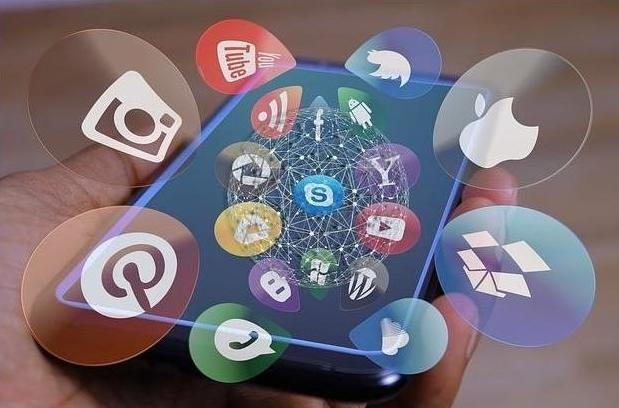
Smartphones have become an indispensable part of our lives. From sending text messages and browsing social media to checking emails and making phone calls, we rely on our phones for just about everything. However, when our dependence on our smartphones turns into an addiction, it can lead to negative consequences on our mental health, relationships, and overall well-being. Here are eight signs that may indicate you have a phone addiction.
1. You Can't Go Long Without Checking Your Phone
One of the telltale signs of a phone addiction is the constant need to check your phone. If you find yourself checking your phone multiple times an hour, you may have developed a dependence on your device. This could be due to a fear of missing out (FOMO) or an inability to focus on one task for an extended period of time.
2. You Check Your Phone First Thing in the Morning and Last Thing at Night
Another sign of a phone addiction is the need to check your phone first thing in the morning and last thing at night. If you can't resist the urge to check your phone before even getting out of bed or find yourself scrolling through social media late at night, you may be addicted to your phone.
3. Your Phone Use Interferes with Your Work or School Performance
If you find that your phone use is interfering with your work or school performance, it's a sign that you may have an addiction. Constantly checking your phone during work or class can decrease your productivity and negatively impact your performance.
4. You Feel Anxious or Irritable Without Your Phone
Another sign of a phone addiction is feeling anxious or irritable when you are separated from your phone. If you find yourself feeling uneasy or distracted without your device, it may be a sign that you have become too reliant on it.
5. You Use Your Phone to Avoid Social Interactions
For many people, smartphones have become a way to avoid social interactions. If you find yourself reaching for your phone instead of engaging in conversation with friends or family, it could be a sign that you are addicted to your device.
6. You Neglect Responsibilities in Favor of Phone Use
If you find that you are neglecting important responsibilities, such as work or household chores, in favor of using your phone, it's a sign that you have an addiction. Spending hours scrolling through social media or playing games on your phone can lead to procrastination and decreased productivity.
7. Your Phone Use Causes Physical Symptoms
Excessive phone use can also lead to physical symptoms, such as eye strain, neck pain, and headaches. If you experience these symptoms after spending long periods of time on your phone, it's a sign that you may have a phone addiction.
8. Your Phone Use Interferes with Your Relationships
Lastly, a phone addiction can negatively impact your relationships. If you find that you are more focused on your phone than on the people around you, it can be an indication that you are dependent on your device. This can lead to feelings of isolation, frustration, and loneliness among your loved ones.
Breaking Free from Phone Addiction
If you recognize these signs in yourself, it's important to take action to break free from your phone addiction. Here are some strategies that can help:
1. Set Limits on Phone Use
One of the most effective ways to break free from a phone addiction is to set limits on your phone use. This might include turning off notifications, setting specific times of day when you will not use your phone, or limiting the amount of time you spend on your phone each day.
2. Find Alternative Activities
Discovering substitute activities for using your phone might also help you quit the obsessive phone-using habit. Exercise, reading, and spending time with friends and family are a few examples of this.
3. Practice Mindfulness
Mindfulness can be a powerful tool in breaking free from a phone addiction. This involves being present in the moment and focusing on your surroundings instead of constantly checking your phone. Mindfulness techniques, such as deep breathing and meditation, can help you become more aware of your phone use and make it easier to resist the urge to constantly check your device.
4. Seek Professional Help
If you are struggling to break free from a phone addiction, it may be helpful to seek professional help. A therapist or addiction specialist can help you develop a plan to reduce your phone use and provide support as you work towards recovery.
5. Use Hypnosis
Another tool that can be helpful in breaking free from a phone addiction is hypnosis. Hypnosis is a state of deep relaxation that can help you reprogram your subconscious mind to break the habit of compulsive phone use. During a hypnotherapy session, a trained hypnotherapist will guide you into a state of deep relaxation and suggest new behaviors and thought patterns that can help you break free from your phone addiction.
Final Thoughts
A phone addiction can have negative consequences on your mental health, relationships, and overall well-being. If you recognize the signs of a phone addiction in yourself, don't hesitate to take action to break free from your addiction. The strategies outlined in this article, such as setting limits on phone use, finding alternative activities, practicing mindfulness, seeking professional help, and using hypnosis, can all be helpful tools in reducing your phone use and improving your overall well-being. Remember, breaking free from a phone addiction is possible, and taking action today can lead to a happier, healthier tomorrow.
#PhoneAddiction #DigitalDetox #ScreenTime #Mindfulness #BreakFree #HealthyHabits
